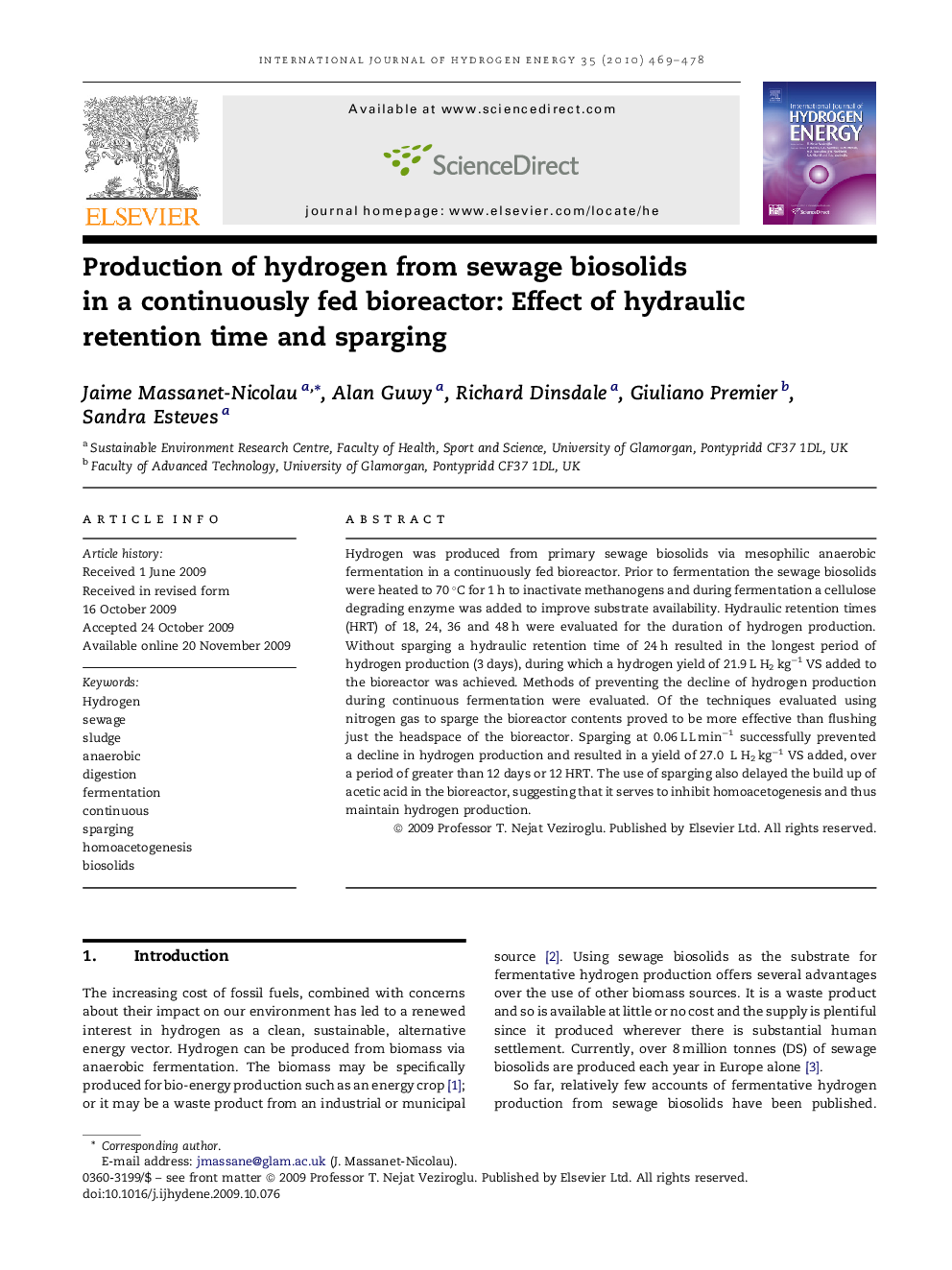| Article ID | Journal | Published Year | Pages | File Type |
|---|---|---|---|---|
| 1281029 | International Journal of Hydrogen Energy | 2010 | 10 Pages |
Hydrogen was produced from primary sewage biosolids via mesophilic anaerobic fermentation in a continuously fed bioreactor. Prior to fermentation the sewage biosolids were heated to 70 °C for 1 h to inactivate methanogens and during fermentation a cellulose degrading enzyme was added to improve substrate availability. Hydraulic retention times (HRT) of 18, 24, 36 and 48 h were evaluated for the duration of hydrogen production. Without sparging a hydraulic retention time of 24 h resulted in the longest period of hydrogen production (3 days), during which a hydrogen yield of 21.9 L H2 kg−1 VS added to the bioreactor was achieved. Methods of preventing the decline of hydrogen production during continuous fermentation were evaluated. Of the techniques evaluated using nitrogen gas to sparge the bioreactor contents proved to be more effective than flushing just the headspace of the bioreactor. Sparging at 0.06 L L min−1 successfully prevented a decline in hydrogen production and resulted in a yield of 27.0 L H2 kg−1 VS added, over a period of greater than 12 days or 12 HRT. The use of sparging also delayed the build up of acetic acid in the bioreactor, suggesting that it serves to inhibit homoacetogenesis and thus maintain hydrogen production.
